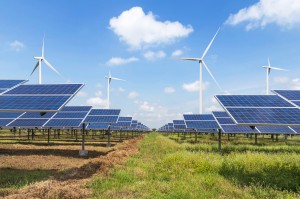At a conference held in Dhaka, Bangladesh, industry players called for the removal of the country’s high import duties on photovoltaic products, which is expected to reduce the price of photovoltaic systems by up to 11%.
The Bangladeshi government currently imposes import taxes of up to 26.2% on photovoltaic modules, 37% on photovoltaic inverters, and 58.6% on the solar mounting racking. Industry experts pointed out at the conference that these high import duties have become a major obstacle to the installation of photovoltaic systems (include ground solar mount,rooftop mounts,agrivoltaics, solar carport,solar greenhouse)in Bangladesh.
In an interview with industry media, Dipal C. Barua, chairman of Bangladesh Bright Green Energy Foundation (BGEF), said: “We have made a request to the government to cut tariffs on PV products in the coming budget as a way to boost the booming industry.” Barua further stressed that the reduction of import duties will significantly reduce the cost of PV systems, especially in the residential, commercial and industrial (C&I) sector, as well as in the PV irrigation business. He explained: “If the cost of purchased PV modules is reduced by about 10%, the interest of smes in installing rooftop PV systems will increase significantly. Distributed PV systems are currently under heavy pressure from high tariffs.”
Barua, former chairman of the Bangladesh Photovoltaic and Renewable Energy Association, also pointed out that although the recent decline in the price of photovoltaic modules has somewhat softened the negative impact of tariffs, high tariffs have ultimately raised the installation cost of photovoltaic systems. “Bangladesh has been facing serious exchange rate problems in recent years due to rising installation costs and a corresponding decrease in bank interest in issuing letters of credit,” he further analyzed.
Atiur Rahman, a former governor of Bangladesh’s central bank, echoed Barua’s view. “To drive the adoption of PV systems in Bangladesh, the government should fully remove duties and taxes on PV products, which is expected to reduce the installation cost of PV systems by 8 to 11 percent,” Rahman said. Khondker Morshed Millat, a faculty member at the Bangladesh Bank Institute of Management, said PV system installers need to be given reasonable tax incentives to make better use of green financing options offered by commercial banks and non-bank financial institutions.
According to the International Renewable Energy Agency (IRENA), by the end of 2023, Bangladesh had installed a cumulative 767MW of photovoltaic systems, a significant increase compared to 524MW at the end of 2022. The Bangladeshi government has approved plans to install 2.1GW of PV systems in 2023, of which 630MW was approved in December 2023 alone. In April this year, the Bangladeshi government approved the development of three more photovoltaic power stations, each with an installed capacity of 100MW.
Post time: Jun-11-2024
